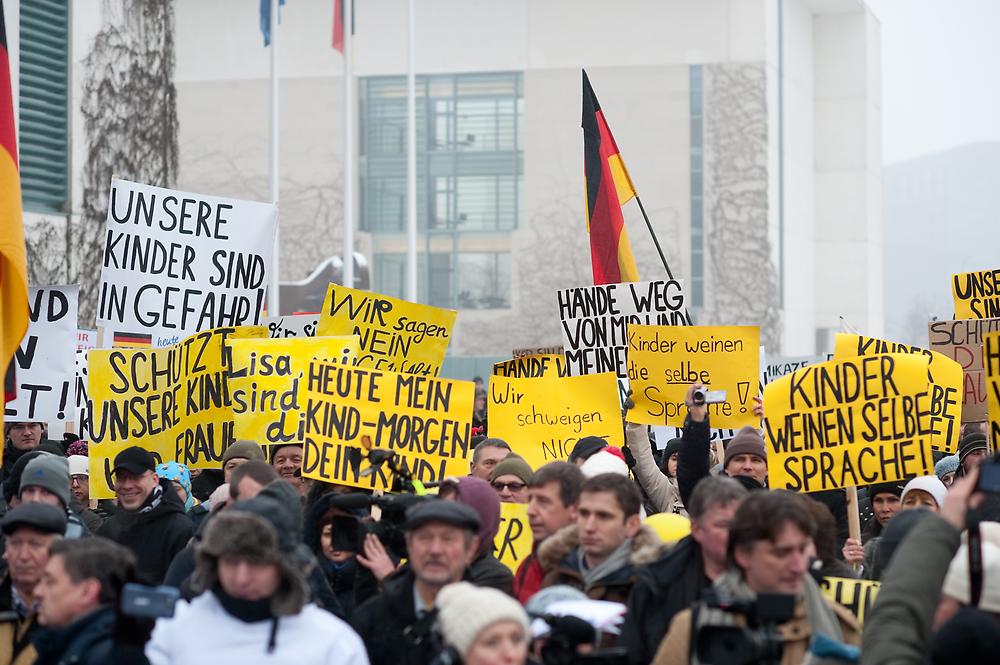First of all, you need to understand that in Russia we have plenty of our own Muslims. The most notorious regions dominated by Islam are in the North Caucasian Federal District (Chechnya, Ingushetia, Dagestan), and Tatarstan. These regions are each unique, and their Islam is very different to the Islam often practiced in the west. Russia has a complicated history with these regions. So, let me give you a brief overview.
First of all, I need to mention that Tatarstan is the spiritual successor state of the Tatar-Mongol 'yoke', which long ago Russia was actually part of. These Muslims were never part of the Ummah, and were isolated from the rest of the Muslim world. They established complex relationships with their non-Muslim neighbours, and didn't enforce Islam... so they have always been unconcerned with the plight of Muslims in other lands.
The North Caucasus is extremely different. Islam was introduced to the region only a century or two ago. Back then life revolved around clans who created alliances via blood ties or 'taips' (a sort of clan). A new branch of Islam was introduced: Sufism. Sufism is distinct from all other Islamic sects since it replicates Caucasian clan structures - all Sufi muslims belong to specific 'tarricat' composed of 'vird'. Sufis revere their saints; who were real people who lived just 150-200 years ago. Until the 1990s Caucasian Islam was Sufi Islam, and they didn't think themselves in any way different from other Muslims.
Now, keep in mind that Russia fought the First and Second Chechen War in the 1990s. Originally Chechen separatists wanted their own country, not because of Islam, but for nationalist reasons. Russia didn't want to let Chechnya leave our federation, and so the war began. At some point Chechen separatists remembered that they are, technically, Muslims, and called on the Islamic world for help. This led to the arrival of mujahedeen from Pakistan, Saudi Arabia, Afghanistan, etc, who fought against the Russian army.
The problem was that these foreign fighters were Salafist fanatics. For them Sufis were heretics who deserved death. They introduced foreign terrorist tactics which were unthinkable for the people of the Caucuses; like torture, and using women and children as suicide bombers.
They also helped young Chechens to visit centers of 'real' Islamic thought in places like Saudi Arabia to teach them 'true Islam'. When these young Chechens returned it created conflicts within their families; explaining why at one point in the war almost half of Chechen separatists changed sides. They dismissed the idea of independence and allied with the Russian army to wipe out the Salafists and their allies. As a result the Caucasus remains mostly Sufi. Most of those who converted to Salafism or other 'traditional' sects actually left Russia as refugees for Europe or the USA. For example, if I recall correctly, Dzhokhar and Tamerlan Tsarnaev, the Boston Marathon bombers in the USA - were from a Salafist family.
With all that in mind you should understand that:
- Ethnic Russians do not like Muslims, given the wars in Afghanistan, Chechnya, and dozens of terrorist attacks (like the Beslan School Massacre or Moscow Theatre Crisis).
- Western Muslims are mostly 'traditional'. For them Russia's native Muslims are heretics who should be wiped out. Thus they are not popular even in Muslim parts of Russia.
- Tatarstan is a Muslim region but they are not interested in the wider Islamic world given their independent culture.
So now you can see why Muslims are not popular in Russia. And it has nothing to do with 'propaganda' or whatever.

roughly 50-50 pro/anti Muslim refugeesDoes "fifty-fifty opinion" now count as propaganda? I'm used to think it's an attempt to give an objective view. Am I wrong?